Compliance to Medicines Working Group Report (CMWG) - Consumer Fact Sheet
Page last updated: 20 September 2010
Australians don’t always take their medicines in the way that their health professional
advise. There can be many reasons for this: experience of adverse side-effects, forgetfulness,
cost, reluctance to accept the diagnosis, a feeling of being stigmatised (for example,
when taking mental health medicines), poor doctor/patient relations, or conflicting
advice.
The Compliance to Medicines Working Group (CMWG) has looked at the research on why
people have trouble taking medicines correctly. The working group gathered information
from a variety of sources and provided a report to advise the Pharmaceutical Benefits
Advisory Committee (PBAC), the pharmaceutical industry and other areas of government
on current research and guidelines. A better understanding through improved quality
of research on compliance to medicines can help governments, the pharmaceutical industry,
health professionals and consumers improve the way medicines and medicines information
are provided. Improving compliance will help to reduce the burden of disease in the
community and ensure the most cost-effective use of health resources. The 14 members
of the CMWG included representatives of the pharmaceutical industry, researchers,
clinicians, consumers and the PBAC.
To be compliant a consumer must: accept the diagnosis and the need to take the medicine to improve their health; adhere to the timing, dosage and frequency of medicine taking; and persist with the medicine
for the prescribed time.
In studies that examine compliance measuring and interpreting information on compliance
is difficult. This is because there are different ways to obtain the information
and different degrees of compliance may be observed. The information can be obtained
by: pill-counting, prescription-refill data, patient diaries, charts, questionnaires,
direct observation, and measurement of levels of drugs in body fluids.
The degrees of compliance observed using these methods show that some people take
their medicine infrequently or for a shortened period of time; take it for long enough
but don’t take it as often as they should; others may take more than the prescribed
dose; and some may take it alongside other medicines that interfere with the action
of the medicine.
Information on compliance can be used to design ways to improve future levels of compliance.
These may include: better patient education and support, reducing the frequency of
the dose, reducing the cost of the medicine, or prescribing a ‘combination medicine’
of two or more drugs that are commonly taken together.
The CMWG has also provided advice to the PBAC about the sources of evidence that can
help determine if a particular combination medicine has a positive effect on compliance
and whether this improves the health of the consumer. These questions can be difficult
to answer because of the limitations of current research methods and lack of Australian
evidence. Overseas studies may be useful but need to be interpreted in the light of
known differences between Australian and other countries’ populations and health service
settings.
The PBAC advises the Australian Government Minster for Health about listing drugs
on the PBS from evidence provided by pharmaceutical industry and other organisations.
This evidence is used to make decisions about which medicines to list on the PBS and
at what cost. Medicines that are listed on the PBS are the ones that provide the best
health outcomes at a cost that individuals and the community can afford.
The field of research on compliance with medicines is rapidly evolving, with many
new methods being developed to assess compliance and apply it in ways that will improve
the health of Australians. The involvement of consumers in research, policy and guideline
development about compliance to medicines is central to achieving optimal health outcomes.
The Compliance to Medicines Working Group Report is available as PDF or HTML.
For further information, please contact Louise.Bartlett@health.gov.au




